#ben bulben
Text


4 notes
·
View notes
Photo
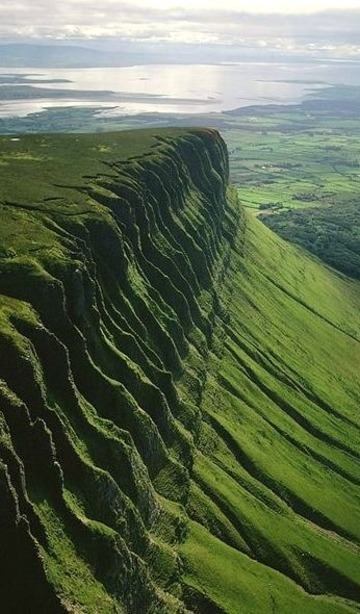
Ben Bulben, County Sligo, Ireland
2 notes
·
View notes
Photo
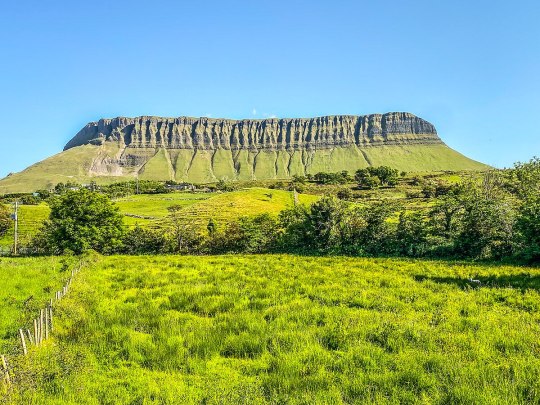
(via https://upload.wikimedia.org/wikipedia/commons/thumb/d/d7/Ben_Bulben_001.jpg/1200px-Ben_Bulben_001.jpg?20230722211305)
2 notes
·
View notes
Text
AKŞAM AKŞAM DERT SAHİBİ YAPTI BENİ ALLAHSIZ DARWİN.
#yıldız#mavi#maviyıldız#aşk#üzgün#söz#sevda#edebi sözler#sevgi#edebiyat#dertleşelim#dertli#kalp acısı#canımın acısı#yalnızadam#yalnızlık#ben bulben#bul beni kaybolmuşum
3 notes
·
View notes
Photo
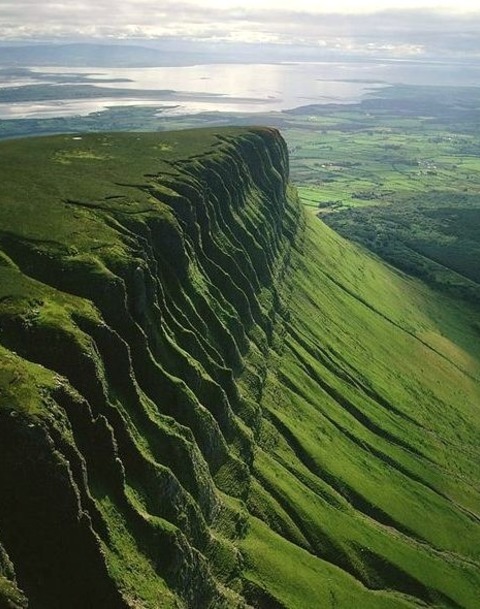
Ben Bulben, County Sligo, Ireland
2 notes
·
View notes
Photo
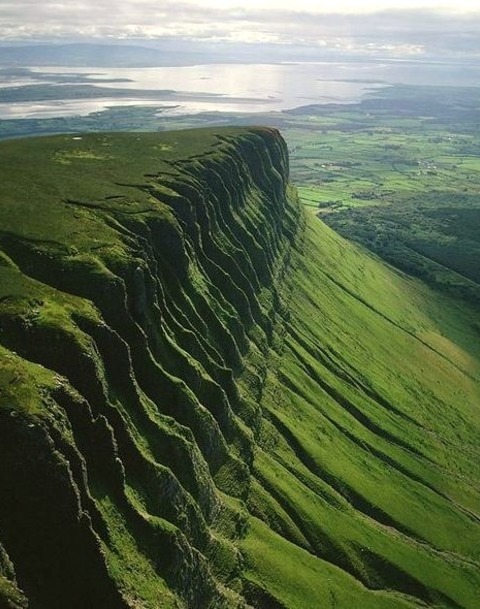
Ben Bulben, County Sligo, Ireland
3 notes
·
View notes
Photo

Ben Bulben, County Sligo, Ireland
2 notes
·
View notes
Photo
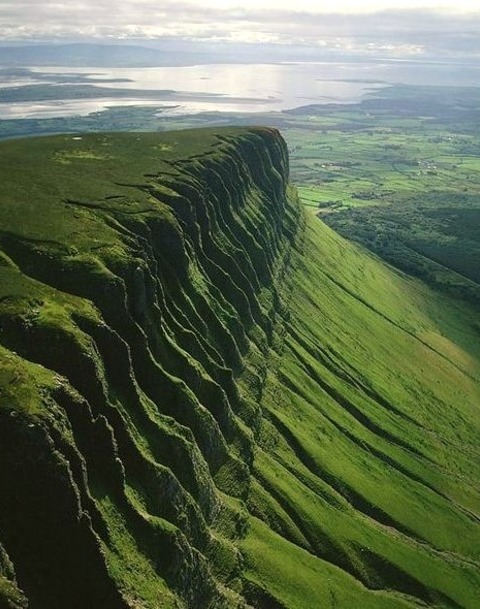
Ben Bulben, County Sligo, Ireland
0 notes
Photo

Ben Bulben, County Sligo, Ireland
0 notes
Text

A poet's puzzling epitaph
On our drive from Derry, out of Northern Ireland and back into the Republic, we paused to pay our respects to William Butler Yeats (1865-1939), an Irish poet you may have heard of.
No tourist trap here, in fact when we pulled into the Drumcliffe Graveyard, in County Sligo, we were the only ones there.
Notice Yeats' epitaph: "Cast a Cold Eye on Life, on Death. Horseman pass by." It's the final stanza from his last poem, "Under Ben Bulben." Ben Bulben is a mountain visible fro Drumcliffe Graveyard.
The epitaph has been the subject of much speculation and interpretation.
It may mean that Yeats wanted death (the horseman of the Apocalypse) to leave him alone for awhile. It may mean that instead of dwelling on life, or death, we should make the most of the time we have. It may mean that earthly life and death are unimportant, compared to the eternal soul.
Or perhaps none of the above ...
We spent the night in Westport. On Tuesday, we're off to Galway.
7 notes
·
View notes
Text
The Tower
William Butler Yeats
I
What shall I do with this absurdity —
O heart, O troubled heart — this caricature,
Decrepit age that has been tied to me
As to a dog's tail?
Never had I more
Excited, passionate, fantastical
Imagination, nor an ear and eye
That more expected the impossible —
No, not in boyhood when with rod and fly,
Or the humbler worm, I climbed Ben Bulben's back
And had the livelong summer day to spend.
It seems that I must bid the Muse go pack,
Choose Plato and Plotinus for a friend
Until imagination, ear and eye,
Can be content with argument and deal
In abstract things; or be derided by
A sort of battered kettle at the heel.
II
I pace upon the battlements and stare
On the foundations of a house, or where
Tree, like a sooty finger, starts from the earth;
And send imagination forth
Under the day's declining beam, and call
Images and memories
From ruin or from ancient trees,
For I would ask a question of them all.
Beyond that ridge lived Mrs. French, and once
When every silver candlestick or sconce
Lit up the dark mahogany and the wine,
A serving-man, that could divine
That most respected lady's every wish,
Ran and with the garden shears
Clipped an insolent farmer's ears
And brought them in a little covered dish.
Some few remembered still when I was young
A peasant girl commended by a song,
Who'd lived somewhere upon that rocky place,
And praised the colour of her face,
And had the greater joy in praising her,
Remembering that, if walked she there,
Farmers jostled at the fair
So great a glory did the song confer.
And certain men, being maddened by those rhymes,
Or else by toasting her a score of times,
Rose from the table and declared it right
To test their fancy by their sight;
But they mistook the brightness of the moon
For the prosaic light of day –
Music had driven their wits astray –
And one was drowned in the great bog of Cloone.
Strange, but the man who made the song was blind;
Yet, now I have considered it, I find
That nothing strange; the tragedy began
With Homer that was a blind man,
And Helen has all living hearts betrayed.
O may the moon and sunlight seem
One inextricable beam,
For if I triumph I must make men mad.
And I myself created Hanrahan
And drove him drunk or sober through the dawn
From somewhere in the neighbouring cottages.
Caught by an old man's juggleries
He stumbled, tumbled, fumbled to and fro
And had but broken knees for hire
And horrible splendour of desire;
I thought it all out twenty years ago:
Good fellows shuffled cards in an old bawn;
And when that ancient ruffian's turn was on
He so bewitched the cards under his thumb
That all but the one card became
A pack of hounds and not a pack of cards,
And that he changed into a hare.
Hanrahan rose in frenzy there
And followed up those baying creatures towards —
O towards I have forgotten what — enough!
I must recall a man that neither love
Nor music nor an enemy's clipped ear
Could, he was so harried, cheer;
A figure that has grown so fabulous
There's not a neighbour left to say
When he finished his dog's day:
An ancient bankrupt master of this house.
Before that ruin came, for centuries,
Rough men-at-arms, cross-gartered to the knees
Or shod in iron, climbed the narrow stairs,
And certain men-at-arms there were
Whose images, in the Great Memory stored,
Come with loud cry and panting breast
To break upon a sleeper's rest
While their great wooden dice beat on the board.
As I would question all, come all who can;
Come old, necessitous, half-mounted man;
And bring beauty's blind rambling celebrant;
The red man the juggler sent
Through God-forsaken meadows; Mrs. French,
Gifted with so fine an ear;
The man drowned in a bog's mire,
When mocking muses chose the country wench.
Did all old men and women, rich and poor,
Who trod upon these rocks or passed this door,
Whether in public or in secret rage
As I do now against old age?
But I have found an answer in those eyes
That are impatient to be gone;
Go therefore; but leave Hanrahan,
For I need all his mighty memories.
Old lecher with a love on every wind,
Bring up out of that deep considering mind
All that you have discovered in the grave,
For it is certain that you have
Reckoned up every unforeknown, unseeing
Plunge, lured by a softening eye,
Or by a touch or a sigh,
Into the labyrinth of another's being;
Does the imagination dwell the most
Upon a woman won or woman lost?
If on the lost, admit you turned aside
From a great labyrinth out of pride,
Cowardice, some silly over-subtle thought
Or anything called conscience once;
And that if memory recur, the sun's
Under eclipse and the day blotted out.
III
It is time that I wrote my will;
I choose upstanding men
That climb the streams until
The fountain leap, and at dawn
Drop their cast at the side
Of dripping stone; I declare
They shall inherit my pride,
The pride of people that were
Bound neither to Cause nor to State,
Neither to slaves that were spat on,
Nor to the tyrants that spat,
The people of Burke and of Grattan
That gave, though free to refuse –
Pride, like that of the morn,
When the headlong light is loose,
Or that of the fabulous horn,
Or that of the sudden shower
When all streams are dry,
Or that of the hour
When the swan must fix his eye
Upon a fading gleam,
Float out upon a long
Last reach of glittering stream
And there sing his last song.
And I declare my faith:
I mock Plotinus' thought
And cry in Plato's teeth,
Death and life were not
Till man made up the whole,
Made lock, stock and barrel
Out of his bitter soul,
Aye, sun and moon and star, all,
And further add to that
That, being dead, we rise,
Dream and so create
Translunar Paradise.
I have prepared my peace
With learned Italian things
And the proud stones of Greece,
Poet's imaginings
And memories of love,
Memories of the words of women,
All those things whereof
Man makes a superhuman
Mirror-resembling dream.
As at the loophole there
The daws chatter and scream,
And drop twigs layer upon layer.
When they have mounted up,
The mother bird will rest
On their hollow top,
And so warm her wild nest.
I leave both faith and pride
To young upstanding men
Climbing the mountain side,
That under bursting dawn
They may drop a fly;
Being of that metal made
Till it was broken by
This sedentary trade.
Now shall I make my soul,
Compelling it to study
In a learned school
Till the wreck of body,
Slow decay of blood,
Testy delirium
Or dull decrepitude,
Or what worse evil come –
The death of friends, or death
Of every brilliant eye
That made a catch in the breath –
Seem but the clouds of the sky
When the horizon fades;
Or a bird's sleepy cry
Among the deepening shades.
2 notes
·
View notes
Photo
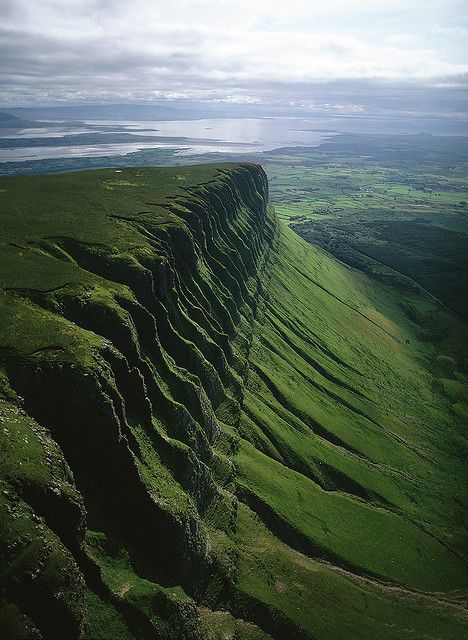
Foto von Jason Hawkes auf flickr|Ben Bulben, County Sligo, Ireland.
2 notes
·
View notes
Text
The Tower
I
What shall I do with this absurdity—
O heart, O troubled heart—this caricature,
Decrepit age that has been tied to me
As to a dog’s tail? Never had I more
Excited, passionate, fantastical
Imagination, nor an ear and eye
That more expected the impossible—
No, not in boyhood when with rod and fly,
Or the humbler worm, I climbed Ben Bulben’s back
And had the livelong summer day to spend.
It seems that I must bid the Muse go pack,
Choose Plato and Plotinus for a friend
Until imagination, ear and eye,
Can be content with argument and deal
In abstract things; or be derided by
A sort of battered kettle at the heel.
II
I pace upon the battlements and stare
On the foundations of a house, or where
Tree, like a sooty finger, starts from the earth;
And send imagination forth
Under the day’s declining beam, and call
Images and memories
From ruin or from ancient trees,
For I would ask a question of them all.
Beyond that ridge lived Mrs. French, and once
When every silver candlestick or sconce
Lit up the dark mahogany and the wine,
A serving man that could divine
That most respected lady’s every wish,
Ran and with the garden shears
Clipped an insolent farmer’s ears
And brought them in a little covered dish.
Some few remembered still when I was young
A peasant girl commended by a song,
Who’d lived somewhere upon that rocky place,
And praised the colour of her face,
And had the greater joy in praising her,
Remembering that, if walked she there,
Farmers jostled at the fair
So great a glory did the song confer.
And certain men, being maddened by those rhymes,
Or else by toasting her a score of times,
Rose from the table and declared it right
To test their fancy by their sight;
But they mistook the brightness of the moon
For the prosaic light of day—
Music had driven their wits astray—
And one was drowned in the great bog of Cloone.
Strange, but the man who made the song was blind,
Yet, now I have considered it, I find
That nothing strange; the tragedy began
With Homer that was a blind man,
And Helen has all living hearts betrayed.
O may the moon and sunlight seem
One inextricable beam,
For if I triumph I must make men mad.
And I myself created Hanrahan
And drove him drunk or sober through the dawn
From somewhere in the neighbouring cottages.
Caught by an old man’s juggleries
He stumbled, tumbled, fumbled to and fro
And had but broken knees for hire
And horrible splendour of desire;
I thought it all out twenty years ago:
Good fellows shuffled cards in an old bawn;
And when that ancient ruffian’s turn was on
He so bewitched the cards under his thumb
That all, but the one card, became
A pack of hounds and not a pack of cards,
And that he changed into a hare.
Hanrahan rose in frenzy there
And followed up those baying creatures towards—
O towards I have forgotten what—enough!
I must recall a man that neither love
Nor music nor an enemy’s clipped ear
Could, he was so harried, cheer;
A figure that has grown so fabulous
There’s not a neighbour left to say
When he finished his dog’s day:
An ancient bankrupt master of this house.
Before that ruin came, for centuries,
Rough men-at-arms, cross-gartered to the knees
Or shod in iron, climbed the narrow stairs,
And certain men-at-arms there were
Whose images, in the Great Memory stored,
Come with loud cry and panting breast
To break upon a sleeper’s rest
While their great wooden dice beat on the board.
As I would question all, come all who can;
Come old, necessitous, half-mounted man;
And bring beauty’s blind rambling celebrant;
The red man the juggler sent
Through God-forsaken meadows; Mrs. French,
Gifted with so fine an ear;
The man drowned in a bog’s mire,
When mocking muses chose the country wench.
Did all old men and women, rich and poor,
Who trod upon these rocks or passed this door,
Whether in public or in secret rage
As I do now against old age?
But I have found an answer in those eyes
That are impatient to be gone;
Go therefore; but leave Hanrahan
For I need all his mighty memories.
Old lecher with a love on every wind
Bring up out of that deep considering mind
All that you have discovered in the grave,
For it is certain that you have
Reckoned up every unforeknown, unseeing
Plunge, lured by a softening eye,
Or by a touch or a sigh,
Into the labyrinth of another’s being;
Does the imagination dwell the most
Upon a woman won or woman lost?
If on the lost, admit you turned aside
From a great labyrinth out of pride,
Cowardice, some silly over-subtle thought
Or anything called conscience once;
And that if memory recur, the sun’s
Under eclipse and the day blotted out.
III
It is time that I wrote my will;
I choose upstanding men,
That climb the streams until
The fountain leap, and at dawn
Drop their cast at the side
Of dripping stone; I declare
They shall inherit my pride,
The pride of people that were
Bound neither to Cause nor to State,
Neither to slaves that were spat on,
Nor to the tyrants that spat,
The people of Burke and of Grattan
That gave, though free to refuse—
Pride, like that of the morn,
When the headlong light is loose,
Or that of the fabulous horn,
Or that of the sudden shower
When all streams are dry,
Or that of the hour
When the swan must fix his eye
Upon a fading gleam,
Float out upon a long
Last reach of glittering stream
And there sing his last song.
And I declare my faith;
I mock Plotinus’ thought
And cry in Plato’s teeth,
Death and life were not
Till man made up the whole,
Made lock, stock and barrel
Out of his bitter soul,
Aye, sun and moon and star, all,
And further add to that
That, being dead, we rise,
Dream and so create
Translunar Paradise.
I have prepared my peace
With learned Italian things
And the proud stones of Greece,
Poet’s imaginings
And memories of love,
Memories of the words of women,
All those things whereof
Man makes a superhuman,
Mirror-resembling dream.
As at the loophole there,
The daws chatter and scream,
And drop twigs layer upon layer.
When they have mounted up,
The mother bird will rest
On their hollow top,
And so warm her wild nest.
I leave both faith and pride
To young upstanding men
Climbing the mountain side,
That under bursting dawn
They may drop a fly;
Being of that metal made
Till it was broken by
This sedentary trade.
Now shall I make my soul
Compelling it to study
In a learned school
Till the wreck of body
Slow decay of blood,
Testy delirium
Or dull decrepitude,
Or what worse evil come—
The death of friends, or death
Of every brilliant eye
That made a catch in the breath—
Seem but the clouds of the sky
When the horizon fades;
Or a bird’s sleepy cry
Among the deepening shades.
1926
1 note
·
View note
Photo
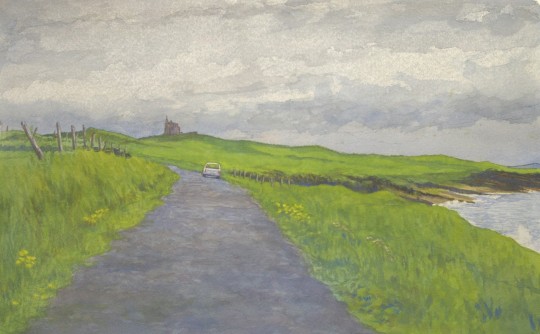
The Road to Drumcliffe – watercolor – 12 x 20 inches “Drink and carouse with Bacchus or munch dry bread with Jesus, but don’t sit down without one of the gods.” — D.H. Lawrence Most roads in the west of Ireland were designed for wagons and carts. If this watercolor were accurate, the car ahead of us would not exist, but instead, a flock of sheep. The composition needed a shape in the middle distance and a sedan seemed easier to draw than animals. High winds from the Atlantic and lonely landscapes are ever present here in this enchanted water-land of fens, brooks, ponds, rivers, lakes and bogs, and so are radiant greens, which I seldom managed to capture with my brushes. Three brothers were traveling to Drumcliffe in a rented Mercedes to pay our respects at the tomb of William Butler Yeats (1865-1939). His grave lies among a dozen others in an old churchyard under leafy shade with the mysterious shadow of Ben Bulben, the great mountain, in the distance. Yeats’ simple headstone reads: “Cast a cold Eye On Life, on Death. Horseman, pass by.” Four horsemen passing: Patrick, Tim, myself and our mystical companion, unseen but always present, the guide and protector of travelers, called Hermes by the old Greeks. Needless to say, he was excellent company during our travels. The road out of Drumcliffe winds south along the windy coast. We had no destination in particular, just some fishing village or other where, at a pub, the locals would suggest a welcome place to spend the night, or perhaps a couple of days. Patience, Curiosity, and Gratitude are essential on Drumcliffe Road because the Road leads to everywhere: to Rome, to Mecca, even to Home. Even to “the undiscovered country, from whose bourn no traveler returns . . . “ #saatchiart #artistsoninstagram #fineart #imagination #arte #contemporarypainting #realisticart #pintura #modernart #kunst #visualpoetry #artdaily #artislife #artstagram #landscapes #watercolors #ireland More images on my website: johnmichaelkeating.com https://instagr.am/p/CgCi-rUsTZ5/
0 notes
Text
Who wrote Horseman pass by?

Was horseman pass made into a movie?
Who wrote Horseman pass by?
What novel is HUD based on?
How do you read Larry McMurtry?
Is Hud based on Horseman, Pass By?
What does Horseman, Pass By mean?
Who wrote Horseman, Pass By?
Is HUD based on Horseman pass by?
Did McMurtry write HUD?
Is Hud based on Horseman pass by?
Did McMurtry write Hud?
How did Hud’s brother die?
What order should I read Larry McMurtry books?
What order should I read Lonesome Dove?
Where do I start with Larry McMurtry?
What does cast a cold eye on life on death?
What is the theme of Under Ben Bulben?
What is written on Yeats grave?
Who wrote HUD?
What did McMurtry write?
Who directed HUD?
What is the plot of HUD?
Why did they kill the cattle in the movie Hud?
What disease did the cows have in the movie Hud?
What is the plot of Hud?
0 notes
Text
Measurement began our might:
Forms a stark Egyptian thought,
Forms that gentler Phidias wrought.
Michael Angelo left a proof
On the Sistine Chapel roof,
Where but half-awakened Adam
Can disturb globe-trotting Madam
Till her bowels are in heat.
Proof that there's a purpose set
Before the secret working mind:
Profane perfection of mankind
--W.B. Yeats, Under Ben Bulben
1 note
·
View note